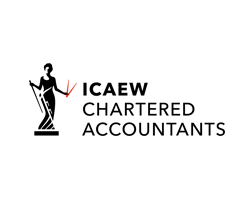March 15th, 2015Top 3 advantages and disadvantages of ‘going Limited’
Deciding to incorporate your business is a big step. There can be brilliant tax incentives. However, we find that many of our sole-trader clients like the ease, familiarity and informality of being a sole-trader and decide not to incorporate even where there is a tax-saving. We encourage our clients to periodically review their situation and make sure they’re still happy with why they chose to be a sole-trader. There are a number of advantages and disadvantages of incorporating but I have listed the top 3 below that seem to resonate with our clients.
Advantages
- Company dividends are not subject to National Insurance Contributions – sole traders are subject to Class 2 and Class 4 National Insurance. On profits between £8,060 and £42,385 (2015/16) this will be another 9% tax and 2% for amounts over this on top of your self-assessment tax.
- If your spouse or partner doesn’t have any income, you could issue the shares in the company 50:50. This would mean that you are utilising both of your basic rate tax bands before having to pay tax at 40%. So, overall you’re paying less tax as a household. If your partner or spouse does have some income then you can decide to issue the shares in whatever proportion suits your circumstances.
- A company can save you money if you intend to retain profits in the company. You are able to treat the company as a tax-efficient “piggy-bank”, taking money out when the tax rates are best for you. Conversely, operating a a sole-trader you pay your income tax on the profits that you make in that tax year.
Disadvantages
- You have to stop thinking about the company’s money as your own. You need to think about the company as a separate person from yourself. You can only take money out of the company in one of three ways:
- through a payroll (via PAYE)
- reimbursed expenses (eg for travel etc that you have funded out of your own money)
- dividends (these are only available if there is enough profit in the company)
- There can be some unwanted effects if you don’t follow the rules above. If you take money out of the company that does not fit into the categories above then it will be treated as a loan to you from the company. The company may then have to pay over a 25% tax charge on the loan and you may have to pay tax on the deemed interest on the loan. Ultimately, if the company was wound up with you still owing the money the you would be personally liable and creditors would come knocking on your door. The most likely creditor would be HMRC!
- It is more costly to administer as there is more legalities and requirements. You need to file a Corporation Tax Return, Limited Company Accounts, administer PAYE, comply with Company Secretarial requirements and you will personally still have a Self-Assessment return to file.
You can incorporate at any time. We find that a lot of clients choose to make the change from 1 April as it makes the transition simpler as you don’t have a tax year when you have both sole trader income and company dividend income.
If you would like to review your particular circumstances, contact your client manager or if you’re not currently a client give us a call on 0151 426 4512 or email





